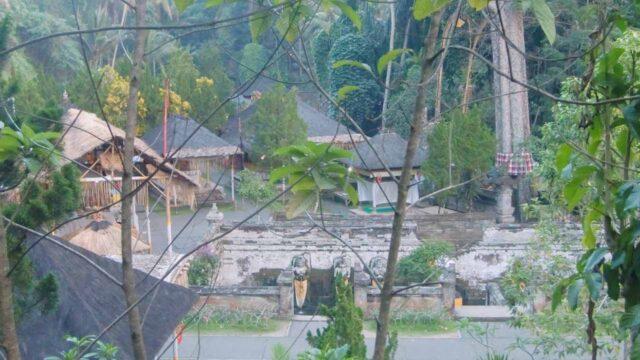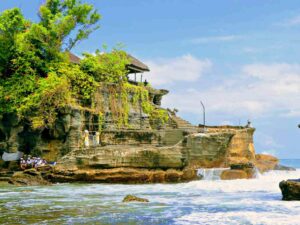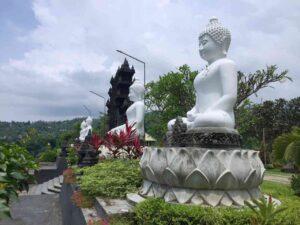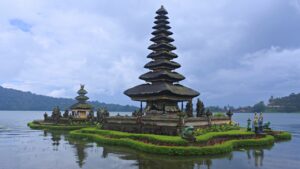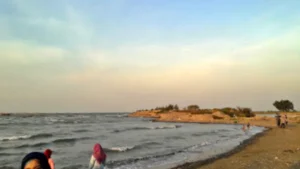Well known as a thousand temples island. Bali’s spiritual vibe is kind of hard to resist. Looking for an exotic ancient site. Make a stop at Elephant Cave in Ubud. A sanctuary for Buddhist and Hindu people with a tropical and calming ambiance.
The cave’s name was taken from the Sanskrit language lwa Gajah. Lwa Gajah means an elephant river. Goa Gajah or elephant cave is a small-scale temple. The temple was used as a meditation place for Hindu priests once. Figures of Hindu statues, carving, and the altar show that the cave has an important role in the past.
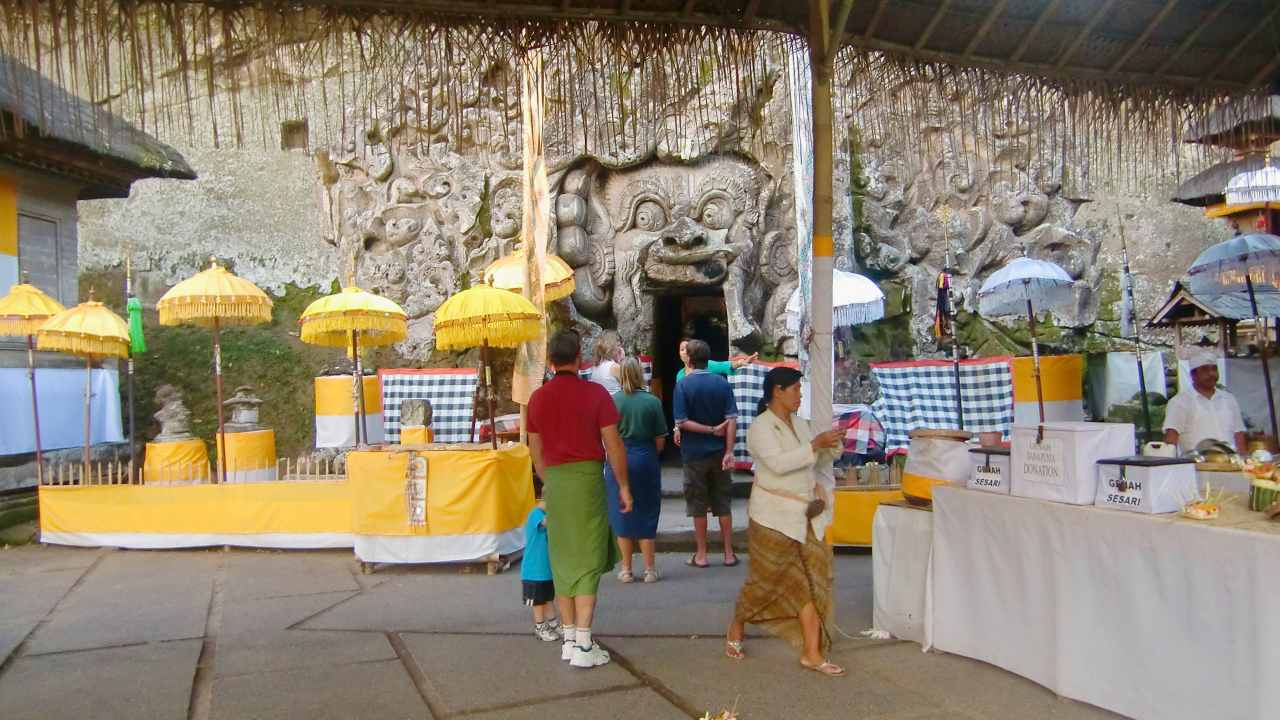
Elephant Cave Entrance Fee
Just like almost every tourist attraction in Bali – entrance fee payment accepted is using the local currency Indonesian Rupiah. They will also lend a Sarong to cover the knees for free. The locals in the cave complex will try to approach visitors and explain the history of the cave. Their service will come at an additional cost. Instead of asking how much at the end of the visit. Agree on the price first and negotiate.
| Elephant Cave Ubud Entrance Fee | |
| International tourist | Rp50.000 |
| Children (5-11 years old) | Rp25.000 |
See: Guide To Explore Ubud Night Market & Street Food.
Elephant Cave Opening Hours
Visitors can visit Elephant Cave every day except for Nyepi day. The cave is open from 9 AM to 5 PM. The best time to visit the Goa Gajah temple or the elephant cave is after 3 PM.
| Elephant Cave Ubud Opening Hours | |
| Every day | 09:00 – 17:00 |
See: Guide To Explore Tegenungan Waterfall From 2 Different Villages.
Elephant Cave Ubud History
The cave has been around since the 11 century when Hayam Wuruk a Majapahit King ruled Bali. Almost the entire sculpture and statue in the cave represent a Hindu figure. But there is one Buddhist sculpture found next to the river. People believe that the cave was likewise used by Buddhists as well once.
The cave later was rediscovered by Dutch archaeologists in 1923. L.C Heyting the archeologist reports the discovery of the Ganesha sculpture and the Tri Langga statue. The research of Heyting’s discovery continues until 1925. In 1954, the Indonesia archeological team found a small pool right in front of the Cave Mouth.
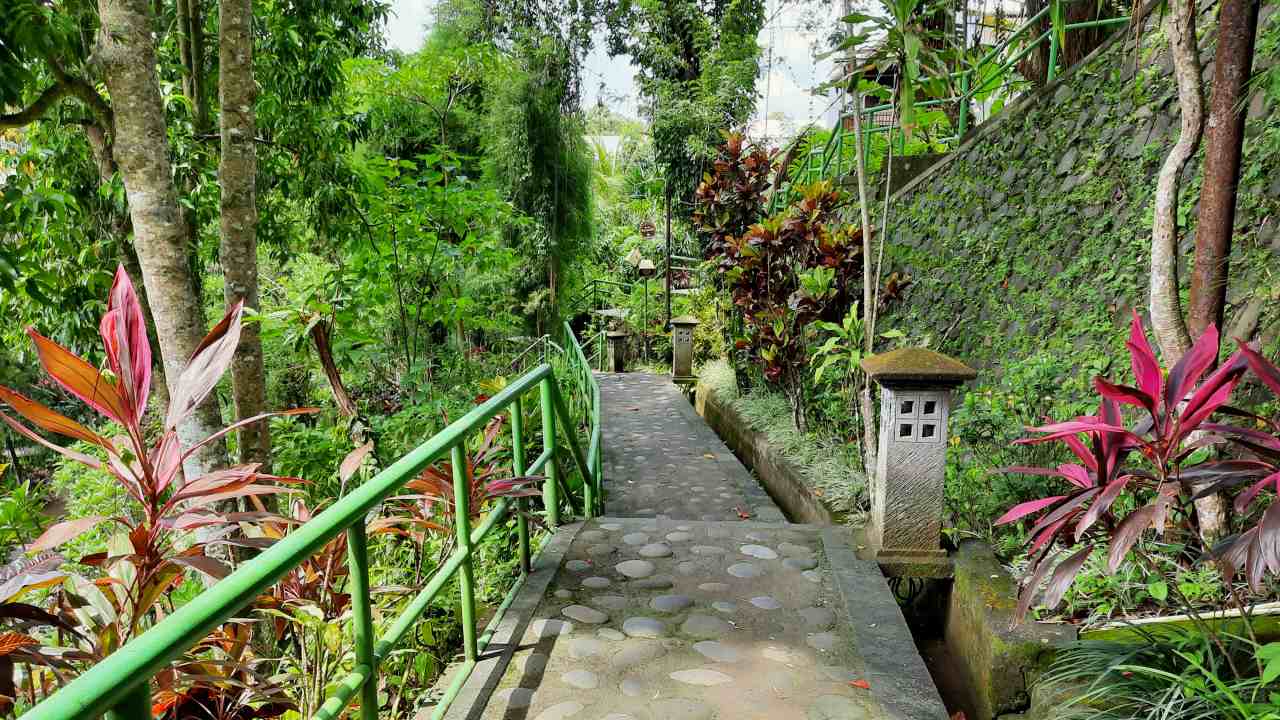
The elephant cave has an important role and becomes a witness in the past. Of how Hindus and Buddhists lived in a harmony. In the 15th century, Elephant Cave was used as a part of Hindu and Buddhist religious ceremonies. There are also 15 holes in the cave. The holes were used once as a place for the Hindu priest to meditate.
Elephant Cave Attractions
The elephant cave area is divided into 2 main parts. The first part represents a Hindu site. The statue of Trilingga and Ganesha inside the cave is a sacred religious place for Hindu people. In the opposite direction, there is 13 Buddhist stupa carved in stone.
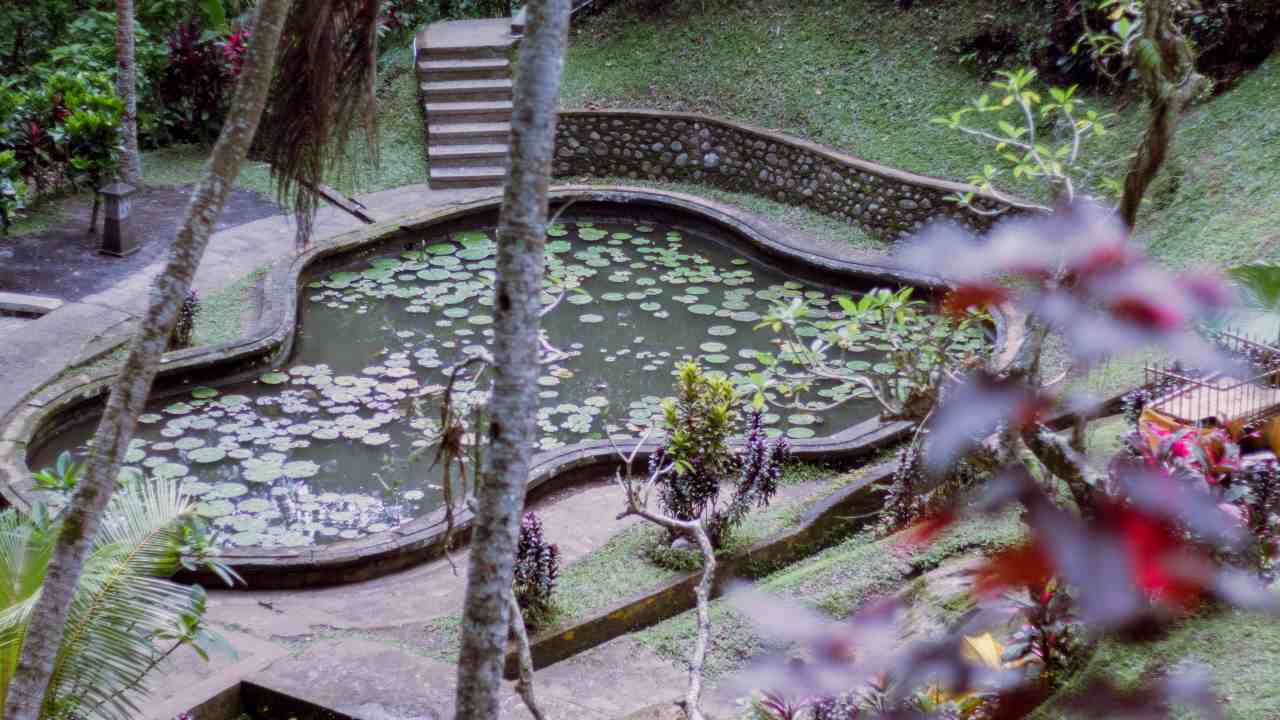
Kalamakara & Goddess Statue
In the mouth of the cave don’t forget to notice Kalamakara’s face. The monster face statue is carved in stone. In Hindu Mythology, Kalamakara is a creature capable of exorcising an evil spirit. Two statues in front of the cave called Dwarapala statue is the guard of the cave.
Inside the cave, there are three statues of God’s manifestation (Syiva, Brahma, Vishnu). And the God of knowledge Ganesha. The cave is sacred and the holiest place of all. As a place to worship God, it’s where the locals and Hindu priests bring an offering and pray.
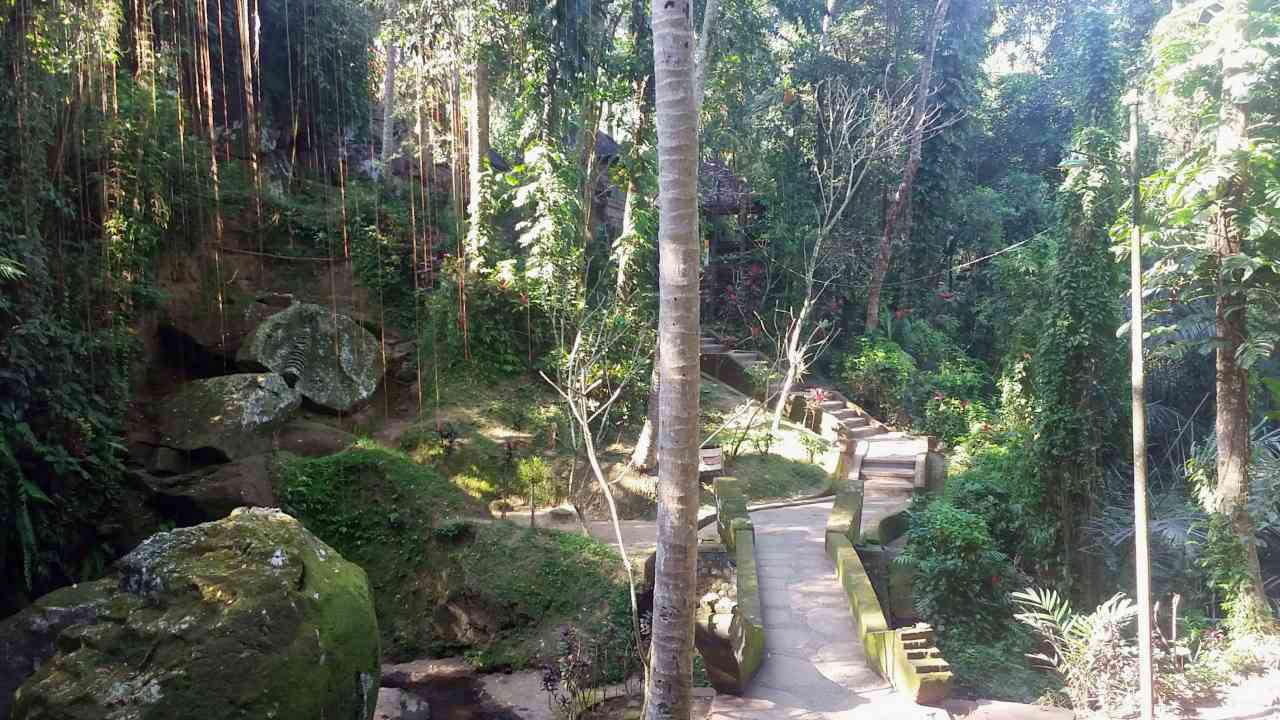
Visitors are allowed to enter the cave and take pictures. However, be respectful and avoid taking a picture while people praying.
Petitraan or Bathing Pool
The pool in front of the cave is a bathing pool. It’s where the locals clean their bodies with holy water before religious rituals and ceremonies. The six women statues in the pool and the water coming from it also believe in magic water. The locals believe the water will heal any disease and keep them young.
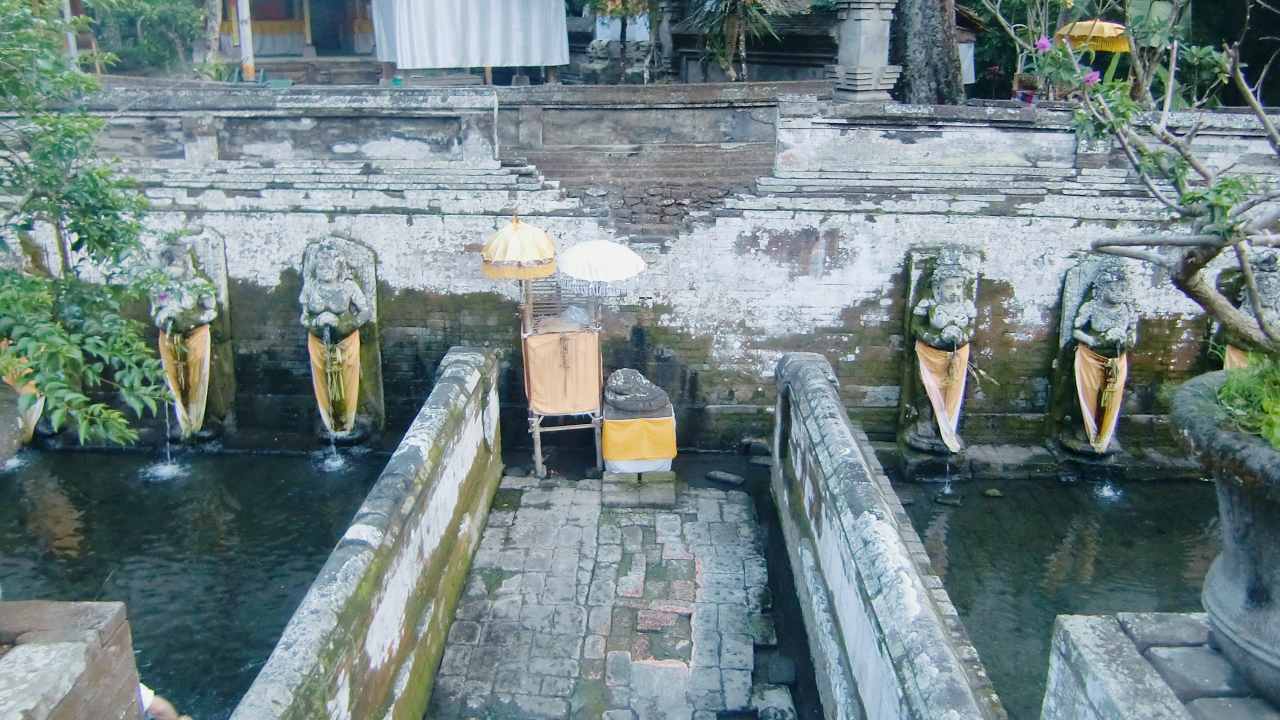
See: Bali Airport Guide & Airport Transfer To Ubud.
Facilities
There is a wide parking space in the area. However, people coming with a private car or scooter will expect to pay for the parking ticket. The entrance fee doesn’t include the parking ticket. A parking ticket for the scooter will cost Rp3.000 and Rp5.000 for a car.
The souvenir shop is available in the parking area. Visitors can buy merchandise such as statues, rings, necklaces, and elephant cave ornaments. A small shop and food stall selling Indonesian snacks and mineral water are in the same location.
There are also restaurants near the place that offers Bali traditional food and a western menu. Make sure to try the traditional dish sambel matah, betutu chicken and plecing kangkung.
See: Guide To Explore Penglipuran Village & Top Things To Do.
How To Get To Elephant Cave
Elephant cave is located in the Ubud area. For visitors coming from the center of Ubud. It will take 15-20 minutes to drive. The distance from the Monkey Forest Ubud is 6 km. Renting a scooter or booking a ride-hail app is the most convenient way to go here. Since public transportation is not really reliable.
For tourists staying in the south part of the island, Kuta, Seminyak, can easily catch a bus to Ubud. The cheapest option going with the Trans Metro Dewata bus from the Ubung bus terminal. The earliest bus departing from Ubung to Monkey Forest Ubud is 4:30 AM, and the latest bus departs to Ubud at 6:30 PM.
In the meantime, the last bus that departs from Monkey Forest Ubud is around 7:58 PM. The bus fare is only Rp4.400 for a one-way trip. However, passengers can only pay using e-card money that can easily be purchased in a minimarket or convenience store. The e-card money cost Rp20.000 to Rp50.000, depends on the credit on the card.
See: Indonesian SIM Card For Tourists, Price & Where To Buy.
Address & Location
Elephant cave is located on the main street of Jalan Raya Goa Gajah, Bedulu Village, Blahbatuh, Gianyar. Bali 80581.

